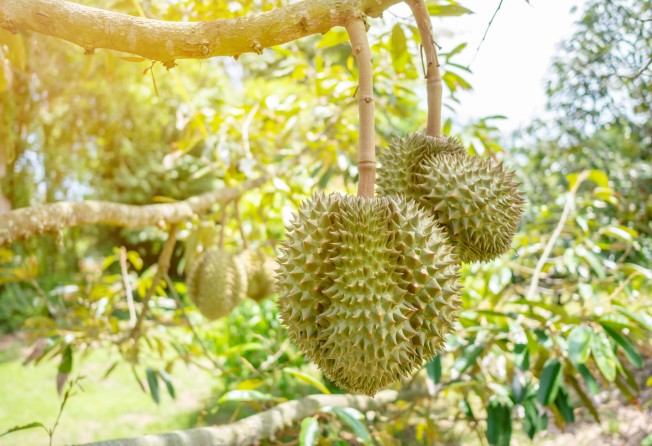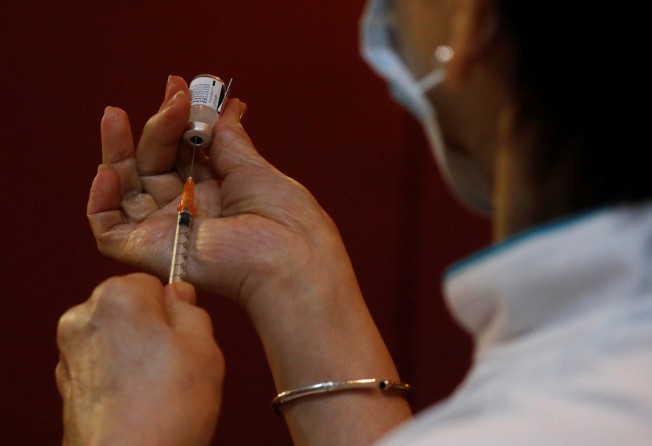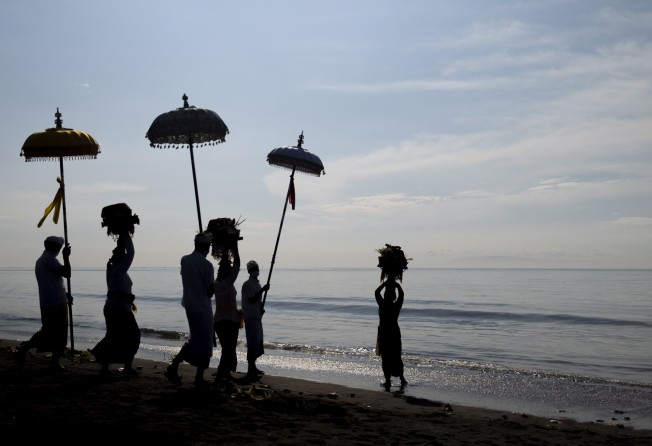
Coronavirus: Indonesia plans ‘one-way’ travel bubble for Singapore tourists to visit Batam and Bintan
- Planned corridor could enable Singaporeans to visit the white sandy beaches of Batam and Bintan as soon as April 21
- But Indonesians will still not be allowed into Singapore

Soh Yi Da misses his monthly trips to Batam, an Indonesian island that is a 45-minute ferry ride away from his home in Singapore. So when Indonesian officials hinted at the possibility of a one-way travel corridor there, he was thrilled.
“The draw is of course the ability to get out of Singapore and feel the fresh air in a foreign place,” said Soh, 32, who works in the financial industry.
Before the coronavirus pandemic brought the world to a halt and shut international borders, he would travel to Batam at least once a month to play golf with his friends and feast on fresh seafood.
“Heading back to Batam will be refreshing,” said Soh, who last visited the island in January last year.
Soh and other Singaporeans might be able to visit the white sandy beaches of Batam and neighbouring Bintan Island as soon as April 21 if plans by Indonesia to open a safe travel corridor for tourists from the city state pan out.
Unlike typical travel corridors, however, this bubble only goes one-way – Indonesians still would not be allowed entry into Singapore.
Indonesia’s tourism minister Sandiaga Uno said on Thursday he had discussed the arrangement with Singapore foreign minister Vivian Balakrishnan, who is on a two-day visit to Indonesia. Balakrishnan invited Sandiaga to try the ferry route from Singapore’s Tanah Merah Ferry Terminal to Nongsa in Batam and Bintan’s Lagoi, he said.
He said ultimately the decision to open the travel corridor would be taken by Indonesian President Joko Widodo and foreign minister Retno Marsudi, but the talks were progressing well.
“They are still finalising the arrangement, but the direction is there [to open a travel corridor with Singapore], because we understand that there is a great market and interest,” Sandiaga said during a news briefing.

“My discussion [with Balakrishnan] was very open and positive. He invited me to come to Singapore, which I see as a very pleasant sign, so that we can take [the discussion of a travel corridor] to the next stage.”
The Indonesia-Singapore travel arrangement is the latest in a series of regional measures aimed at reviving the pandemic-battered tourism sector now vaccination drives are under way in some destinations.
Indonesia is discussing separate bubbles with China, the United Arab Emirates, Qatar, the Netherlands, India, Malaysia, and Japan, while Australia is discussing bubbles with New Zealand and Singapore. Hong Kong and Singapore are also talking about a travel bubble, while Taiwan has agreed on a travel bubble with Palau and has separate discussions with Japan, South Korea, Singapore, and Vietnam. The Hong Kong-Singapore plan for a quarantine-free travel bubble had been due to open in November last year but was postponed following an uptick in virus cases in the Chinese city.
The Association of Southeast Asian Nations (Asean) agreed in November to set up an Asean Travel Corridor Arrangement Framework, which would allow for quarantine-free business travel between all 10 member states, though the framework is yet to be finalised.
Other than Taiwan and Palau, whose travel bubble will kick off on April 1, the fate of travel arrangements between the rest of the countries still hangs in the air, due to the risk of new, more contagious coronavirus variants emerging.
Teo Yik Ying, dean of the National University of Singapore’s Saw Swee Hock School of Public Health, said the growing number of travel bubble talks between nations in the region was a cause for optimism but he doubted leisure travel would resume within the next three months.
“I am a lot more sanguine if asked about the possibility of leisure travel at the end of 2021. I believe there will be a number of travel bubbles established and operational by the end of 2021, and most if not all of these will rely on proof of vaccination for travel permission,” he said.
“However, this optimism is also built on the assumption that vaccine-resistant strains of the coronavirus do not emerge.”
He said success of the Indonesian-Singapore travel bubble would rely on both Singapore-based travellers and hospitality staff in Bintan and Batam being vaccinated.

Under the Indonesia-Singapore travel arrangement, travellers will have to produce negative PCR test results before departure. They will also have to be retested upon arrival, using an Indonesian-made breathalyser device called GeNose, which is supposed to be able to detect Covid-19.
Azril Azahari, chairman at the Indonesian Tourism Scholars Association, pointed out that Indonesia’s image could be stained if foreign tourists were infected during their stay. Indonesia had recorded over 1.4 million coronavirus cases and over 40,000 deaths as of Thursday, the highest caseload and death toll in Southeast Asia.
“I think it’s still too early to open travel corridors, as Indonesia’s coronavirus cases have only started to drop, but progress remains slow. If tourists are infected from their visits to Indonesia, Indonesia’s image among international communities could be marred,” Azril said.
REOPENING BALI
Sandiaga hopes that the reopening of Batam and Bintan islands could revive the tourism sector in Riau, the province in which the islands are situated and where international tourist arrivals declined more than 85 per cent last year. Riau is about two hours from the Indonesian capital Jakarta by plane.
Two zones that have been prepared for the tourists are Nongsa district in Batam and the Lagoi Bay area in Bintan, which are famous for their scenic beaches.
Hotel operators in Nongsa are excited over the plan, as the average occupancy rate has tanked since tourists from Singapore – the biggest source of international visitors to the island – ditched their holiday plans amid the pandemic.
“Before the pandemic, we hosted many Singaporean tourists and our occupancy rate reached up to 90 per cent on the weekends, but since the borders closed our occupancy rate really declined, now maybe it’s only around 15 per cent,” said Yuliana Chandra, marketing communication at Nongsa Point Marina & Resort.
The resort’s staff now work only 15 days per month, though they all have been vaccinated with China’s Sinovac jab, she said.
“We hope the borders can reopen soon so tourists can come here again, either for leisure or business,” Yuliana said.

Aside from Batam and Bintan, Jakarta also plans to allow international tourists to visit Bali, the country’s main tourist destination, in June or July, provided the country has vaccinated at least two million Balinese by the summer.
To support the plan, Indonesia is considering launching a Mumbai-Bali travel corridor.
Wellian Wiranto, an economist at OCBC Bank, said the potential reopening of these islands was reason to hope for some relief for the “much-beleaguered” parts of the country.
“Even if the two provinces make up just over 3 per cent of national GDP, if the Indonesian authorities can successfully convince their counterparts elsewhere that they have dampened the pandemic spread enough to reopen with confidence, it would serve as an important milestone in the path towards post-pandemic recovery,” he said.
But some tourism experts are sceptical that international tourists will be ready to visit Bali by this summer. Holidaymakers might postpone their travels until 2022, said Matt Gebbie, director at hospitality consultant Horwath HTL in Indonesia.
“I don’t think foreign visitors will be back in any volume in 2021 as origin countries will not allow residents to travel back and forth. Depending on the effectiveness of vaccination programmes and vaccination passports, which are rolling out, some more effectively than others, I believe that domestic tourism is the only conversation worth developing in 2021 and let’s see for 2022,” he said.
Soh in Singapore, however, was confident that the travel bubble could work, pointing to how authorities had suggested tourism spots would be sealed and only locals who had been vaccinated could enter.
“In Indonesia, they use the term ‘semua bisa diatur’ in Bahasa Indonesia, [which means] everything can be arranged,” he quipped. “I have faith that the Indonesian government can arrange something well.”